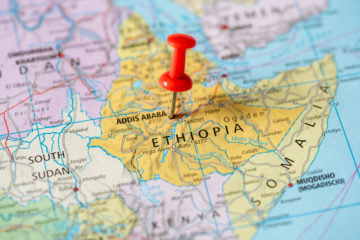The Crown’s Irresponsible Adviser, the Governor General, and the Australian Constitutional Crisis of 1975: A Smoking Gun?
On 14 July, following legal proceedings, the National Archives of Australia released correspondence between Sir John Kerr, who served as Governor General of Australia from 1974–77, and Sir Martin Charteris, the Principal Private Secretary (PPS) to the queen. The letters concern Kerr’s decision to dismiss Gough Whitlam, the Labor Prime Minister, who was then locked in a battle between the House of Representatives, where he held a majority, and the Senate, which opposed him and was blocking supply (the federal budget). Leading scholars, such as Anne Twomey, as well as Buckingham Palace, have argued that the letters contain no smoking gun connecting Kerr’s actions to the monarch or her PPS. However, we believe that we can see a wisp of smoke. And it lingered. Kerr and Charteris …
Undoing the Fixed Term Parliaments Act
In the month of November, Boris Johnson’s government will most likely instate a committee review of the Fixed Term Parliaments Act (FTPA) with the ultimate goal of fully repealing it. This Act, introduced in 2011, was supposed to fix the date of the general election to be every five years. Its planned repeal is part of a number of sweeping constitutional reforms that would empower the British executive over Parliament, which the Conservative Party vowed to push for in its 2019 electoral manifesto. With the ongoing global pandemic and the protracted Brexit talks with Brussels, the Conservative’s plan to repeal the FTPA have largely flown under the public’s radar. Yet if a repeal goes through, it would have a significant …

Is The Charter Cities Moment Here?
In 2009, Nobel Prize laureate and former Chief Economist of the World Bank Paul Romer proposed the concept of ‘charter cities.’ In contrast to special economic zones, charter cities were envisaged as quasi-sovereign units located within existing states which were to be maintained by a foreign guarantor nation or nations. This arrangement would not merely construct a separate economic framework for the designated territory, but also establish a legal and political system autonomous from the host state. This, Romer believed, would create city-scale epicentres to stimulate economic development within the Global South. This piece examines Romer’s project and questions the immediate feasibility of such a project by taking into account the ‘stickiness’ of ideas regarding the territorial sovereign state. Since 2009, the idea of charter …
October Surprise: How Foreign Policy Can Shape US Presidential Elections
The president’s recent diagnosis with Covid-19 sent the US presidential election race into a tailspin. As Donald Trump and Joe Biden jockey to regain control of the media narrative at a crucial phase of the campaign, speculation about a possible “October surprise” is widespread. Today, the term refers to any news story that breaks late in an election cycle and has the potential to affect the outcome of the election. Yet its origins are firmly rooted in foreign policy. In particular, the phrase describes a sitting president’s alleged propensity to manipulate events to boost their electoral prospects. The president’s recent tweet calling for all remaining US forces in Afghanistan to return home by Christmas has fueled suspicions that Trump is playing politics …

Lockdown and the Climate Crisis
In 2020, lockdowns around the world have reduced energy use and carbon emissions on an unprecedented scale. However, the current COVID-19 outbreak may be a double-edged sword in the fight against climate change. Individual countries are imminently due to report their carbon reductions, as outlined in the United Nations-brokered Paris Agreement. Although pre-Coronavirus crisis global greenhouse gas (GHG) emissions are expected have grown by 1.9%, recent CO₂ calculations in Europe are predicting a surprising scenario: countries may actually hit their stated reduction goals. For instance, the German climate target for 2020, which until February was considered unattainable, should now be met. Due to this year’s mild winter, and, above all, the Coronavirus crisis, the target of 40% CO₂ savings—unlike climate change targets …

How Natural Resource (Mis-)management in the Nile River Basin May Threaten Stability
As the Grand Ethiopian Renaissance Dam (GERD) nears completion, the Nile River Basin is at a crossroads. The next few months will be consequential for relations between countries in the river basin—notably Ethiopia, Sudan, and Egypt—because dam management upstream could have consequences for the supply of water downstream. Although the three countries began discussions after the project was announced in 2011, they have yet to reach an agreement on how the new reservoir should be filled and managed. Despite the absence of an agreement, Ethiopia intends to begin filling the reservoir this July. This article describes the competing perspectives between countries, explains reasons for the lack of an agreement, and provides recommendations for addressing the challenges of the GERD. If …
In the Orbit of Democracy: Satellite Parties in South Korea’s 2020 Parliamentary Election
The South Korean legislative election on 15 April 2020 received high attention in international news as the first national election held under the constraints of the COVID-19 pandemic. Still, voter turnout, at 66.2 per cent, was the highest in 28 years and a North Korean defector, for the first time, was elected to the unicameral National Assembly (Gukhoe). The election, which resulted in a landslide victory for the incumbent government’s party, was the first under a new electoral reform that introduced compensation seats within the proportional representation (PR) tier of the mixed electoral system. In response, both major parties set up satellite organisations that only competed for PR seats. Thereby, the major parties consolidated their hegemony in the National Assembly …
Shinzo Abe or Abe Shinzo: From Western Order to International Order?
To what extent is the international community truly international? And, to what extent are non-Western norms and practices excluded? The choice of language in international relations is one important aspect of this broad topic. Each international organization has official languages. The United Nations, for example, has six official languages, and the European Union 24, though only three – English, French and German – are used in procedures of the Commission. The choice of language is partly driven by the need to communicate to the widest number of people, but it also has an endogenous relationship with state power. Powerful states promote the languages they use, and in turn, others must learn their languages to participate, propagating their power. An important aspect of the choice of …









